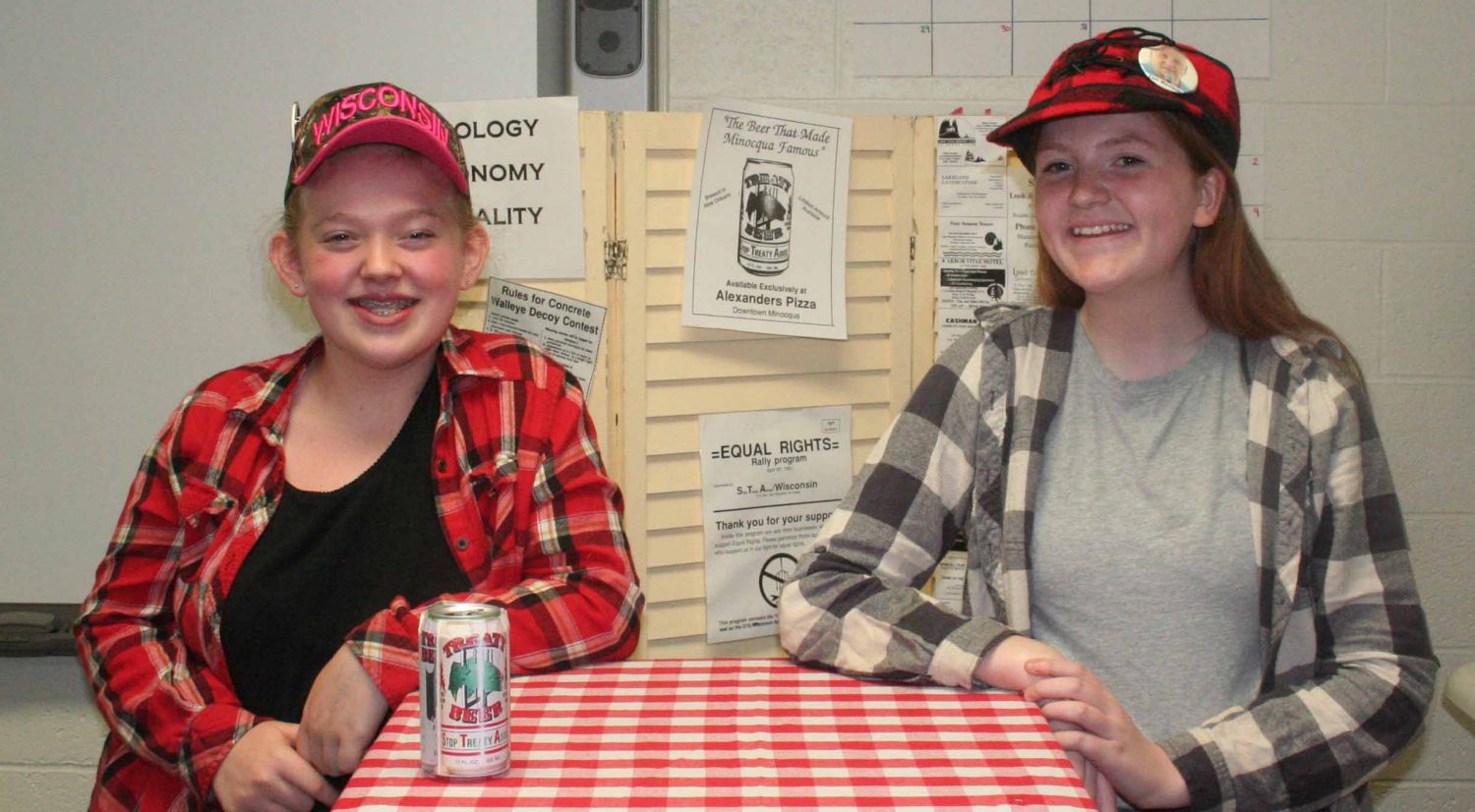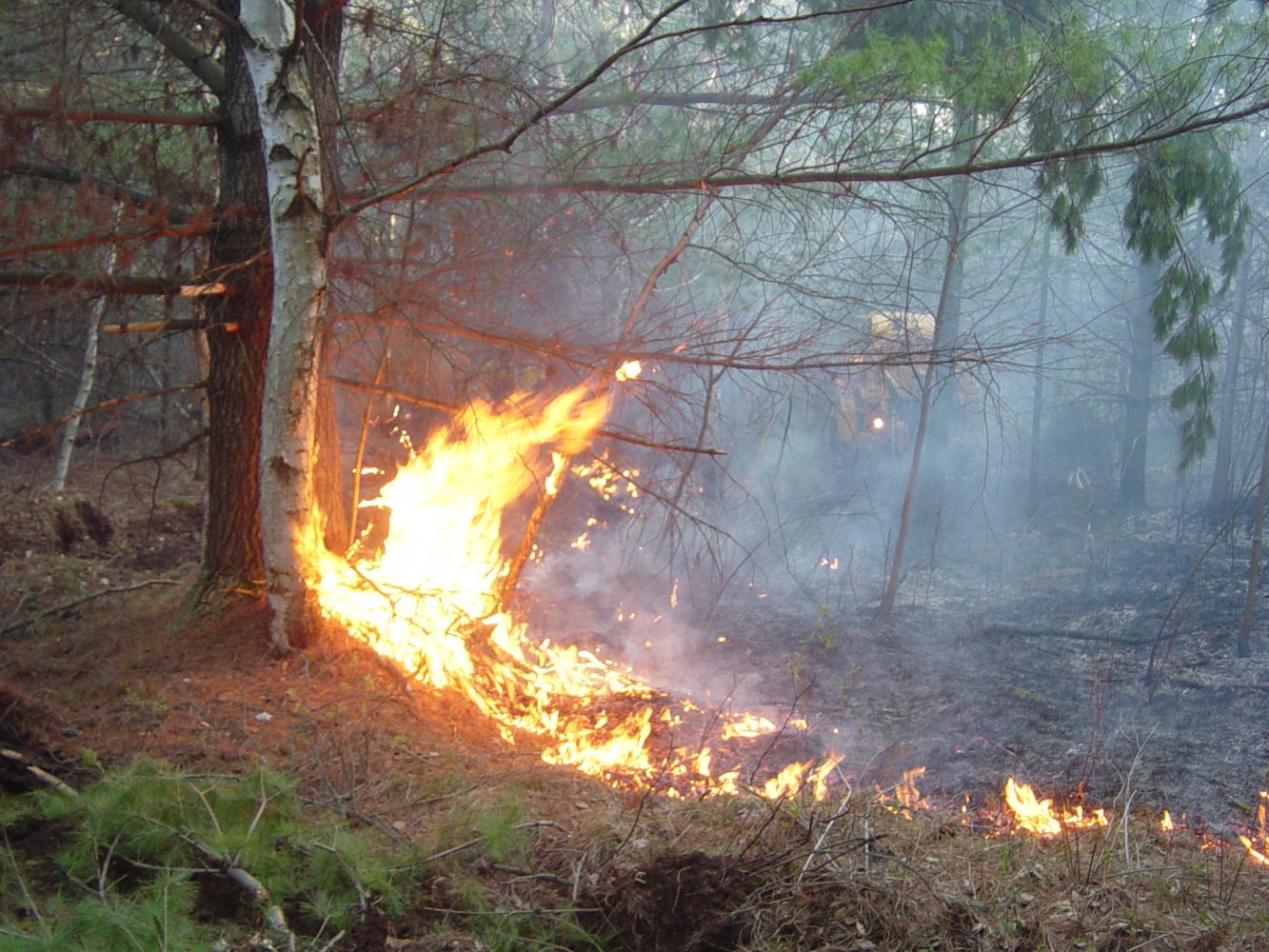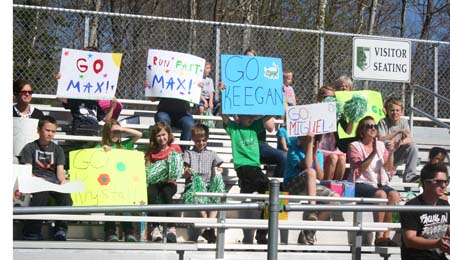Conflict and compromise

Students showcase centuries of local history
By EILEEN PERSIKE
Editor
Megan Hoffein and Skylar Peitsch are taking their history show on the road. The pair of Rhinelander High School ninth graders spent the school year researching, writing and perfecting their performance, “Walleye Wars: Conflict over Spearfishing,” and are headed to Washington D.C. to the national competition for National History Day (NHD).
It’s a fitting topic for this year’s NHD theme, Conflict and Compromise.
“We like to do local history, and topics that are closer to our town,” Peitsch said. “(NHD advisor) Mrs. Higgins had the idea; we looked into it more and we liked all the different conflict sides so we thought it would be really fitting for the topic.”
Confrontations between Ojibwe Indians and non-Indians began in northern Wisconsin in the early 80s when a federal court reaffirmed Indian treaty rights and continued through the early 90s. But the subject of the conflict came into being more than a century earlier. The girls’ research dated back to 1837, when the Wisconsin Ojibwe first signed a treaty – trading land for hunting, fishing and gathering rights – with the government. And they found “tons” of people to interview who were at the boat landings and witnessed the events for themselves or were involved in other ways.
“That was super super helpful,” Hoffein said. “We spoke to Tom Maulson, Dean Crist, (former federal) Judge Barbara Crabb, Mike Michalak, who was a reporter then, Craig Strid, who was a police officer, some protesters.”
Their eight to 10 minute performance begins with the girls wearing blazers, explaining the treaties and then change into flannel shirts and become a protester and Stop Treat Abuse Wisconsin organizer Dean Crist at a meeting, planning a protest.
“Then we introduce (Lac du Flambeau Tribal Chief at the time) Tom Maulson, and then it’s him and Dean Crist talking about how the conflict is getting out of hand and Christ says he’s just doing his job, and Maulson says they are just practicing their spearing traditions,” Hoffein said.
Judge Crabb video chatted with the students; they asked her about the treaties and Crabb shared with them her thoughts and opinions surrounding her multiple treaty rights decisions made between 1987 and 1991.
Hoffein and Peitsch are at least one generation removed the conflicts and resolutions that surrounded treaty rights and spearfishing and both admit they knew nothing of the events that took place and shaped local and state politics and changes in education and resource management.
An example they cite in their play is Wisconsin Act 31, which came about as part of a court-ordered compromise. “It said that schools in Wisconsin have to teach Native American history three times” before a student graduates.”
“I was surprised by the extremeness of the conflict,” Peitsch said. “People would throw cement blocks at each other; tip over the canoes of the Indians, swearing at them all the time.”
Hoffein said what stands out to her was the scope of the conflicts, noting, “I think just that something so big happened so close to home.”
The students will be heading to D.C. right after school lets out for the summer, and are accepting financial donations to assist with the travel and lodging costs. Anyone interested in helping the students can call Rhinelander High School, 715-365-9500, or email Kristen Higgins at [email protected].
Leave a reply
You must be logged in to post a comment.





